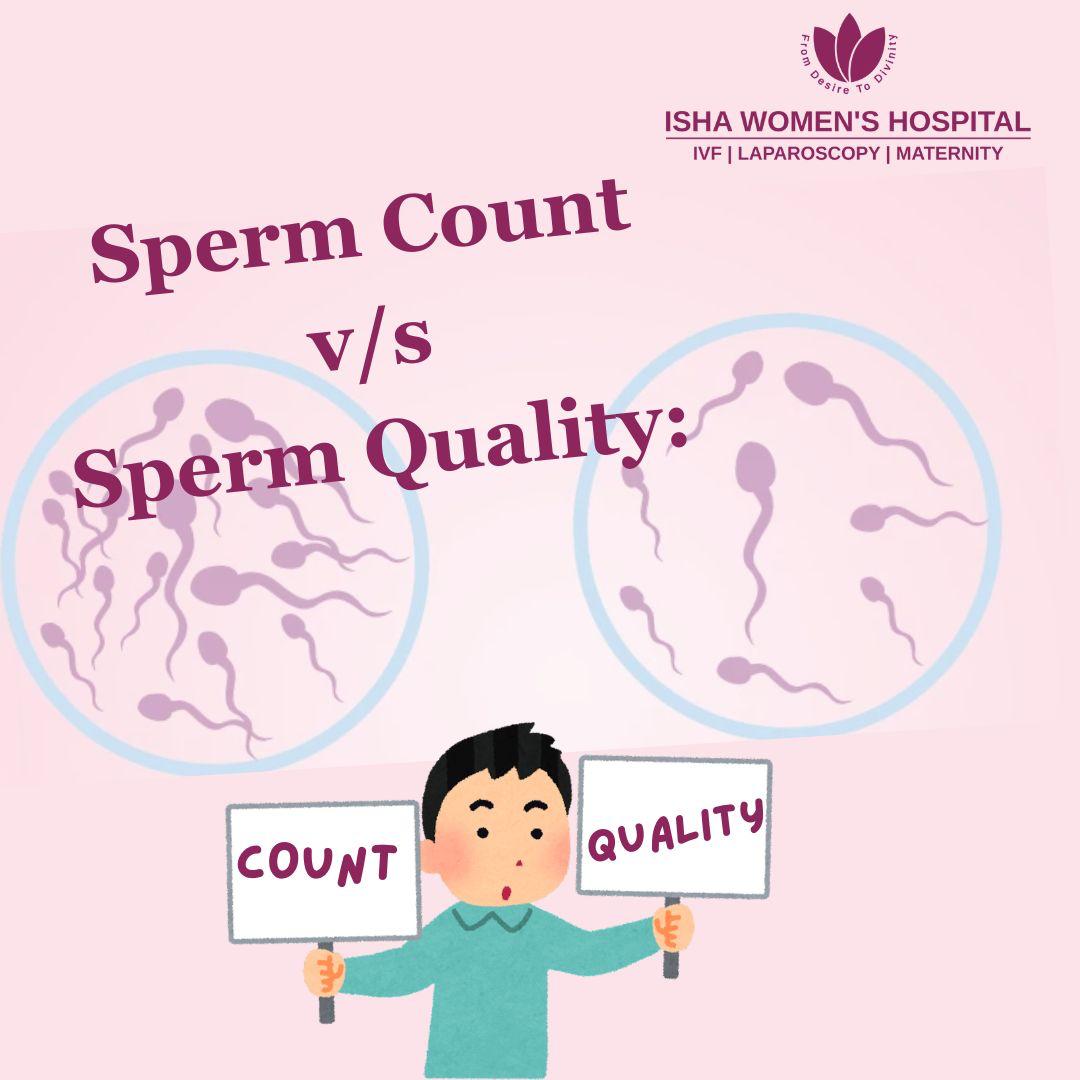Sperm Count vs. Sperm Quality - What Matters Most for Fertility?

At Isha Women's Hospital, recognized as the best IVF centre, the state-of-the-art laboratory and expert team of fertility specialists, under the guidance of Dr Chinmay Pataki, one of the best fertility experts & gynaecologists in Mumbai provide advanced fertility treatments tailored to individual needs.
Understanding Sperm Count and Sperm Quality
Sperm Count:
Sperm Quality:
- Sperm Motility: The ability of sperm to move efficiently. At least 40% of sperm should have progressive motility for optimal fertility.
- Sperm Morphology: The shape and structure of sperm. A higher percentage of normally shaped sperm increases the chances of fertilization.
- Sperm DNA Integrity: Healthy DNA is crucial for successful fertilization and embryo development.
Which Matters More: Sperm Count or Sperm Quality?
The expert team of Isha Women's Hospital uses cutting-edge techniques like Micro-TESE (for Zero sperm count) an advanced sperm retrieval procedure, and ICSI (Intracytoplasmic Sperm Injection) to help men with severe sperm abnormalities achieve fatherhood.
When Sperm Count is Low but Quality is Good
When Sperm Count is High but Quality is Poor
How to Improve Sperm Count and Quality
Dr. Chinmay Pataki, one of the best male fertility specialists in Mumbai, emphasizes that both sperm count and quality can be significantly improved by making the right lifestyle modifications. Here are some key changes that can enhance male fertility:
- Maintain a Nutrient-Rich Diet: Consuming foods high in antioxidants, vitamins, and omega-3 fatty acids supports healthy sperm production.
- Engage in Regular Exercise: Moderate physical activity helps regulate testosterone levels and improves overall sperm health.
- Avoid Smoking and Excessive Alcohol: Tobacco and alcohol consumption can negatively impact sperm quality and reduce fertility potential.
- Manage Stress Effectively: Chronic stress can disrupt hormone balance and impair sperm motility. Practising relaxation techniques like meditation or yoga can be beneficial.
- Stay Hydrated: Drinking plenty of water ensures optimal semen production and sperm function.
- Minimize Heat Exposure: Avoid prolonged exposure to high temperatures from hot tubs, saunas, and tight clothing, as excessive heat can lower sperm count.
Conclusion
At Isha Women’s Hospital, we offer state-of-the-art laboratory services and the best fertility care to help couples achieve their parenthood dreams. Book a consultation with our expert team today and take the first step toward successful conception.
Frequently Asked Questions (FAQs)
Answer:
- Sperm count refers to the number of sperm in a semen sample.
- Sperm quality includes factors like motility (movement), morphology (shape), and DNA integrity.
Both are important for fertility, but poor quality sperm—even in high numbers—can reduce the chances of fertilization and healthy pregnancy.
2. Is a high sperm count enough for fertility?
Answer: Not always. A high sperm count with poor motility or abnormal shape may still make it difficult to achieve pregnancy. Fertility depends on both quantity and quality—healthy sperm must reach and fertilize the egg.
3. What matters more: count or quality?
Answer: Sperm quality often matters more—especially in natural conception and assisted reproduction like IVF. Even a low sperm count can result in pregnancy if the sperm are healthy and capable of fertilization. In contrast, a high count with low quality may require medical assistance.
4. How are sperm count and quality tested?
Answer: A semen analysis evaluates:
- Concentration (sperm per ml)
- Motility (how well they move)
- Morphology (normal shape and structure)
- Volume and pH of semen
Advanced tests may assess DNA fragmentation or oxidative stress if needed.
5. Can sperm quality and count be improved?
Answer: Yes. Lifestyle changes like quitting smoking, eating a balanced diet, managing stress, exercising, and avoiding heat exposure (like hot tubs) can boost both. Supplements like zinc, vitamin C, CoQ10, and omega-3s may also help.
At Isha Women’s Hospital, we offer full male fertility evaluations and treatment options.
